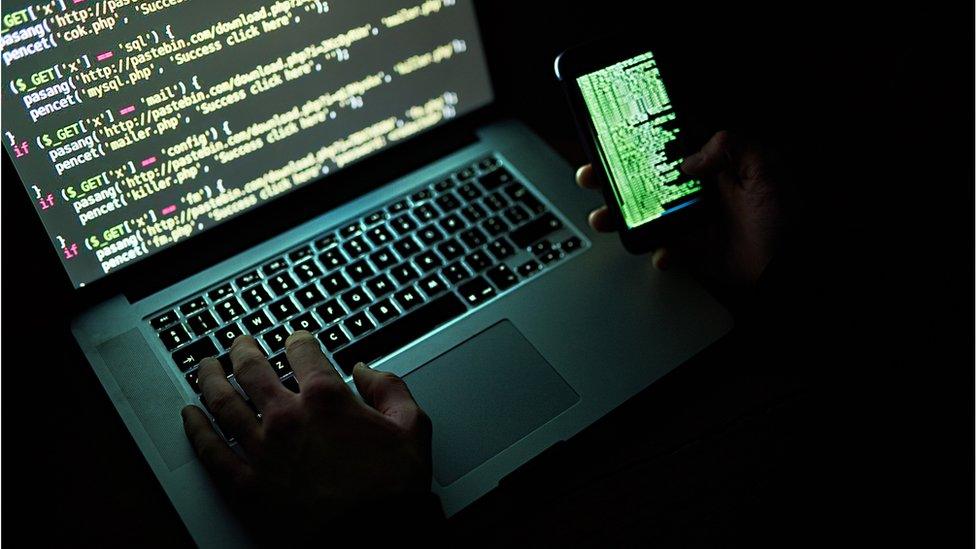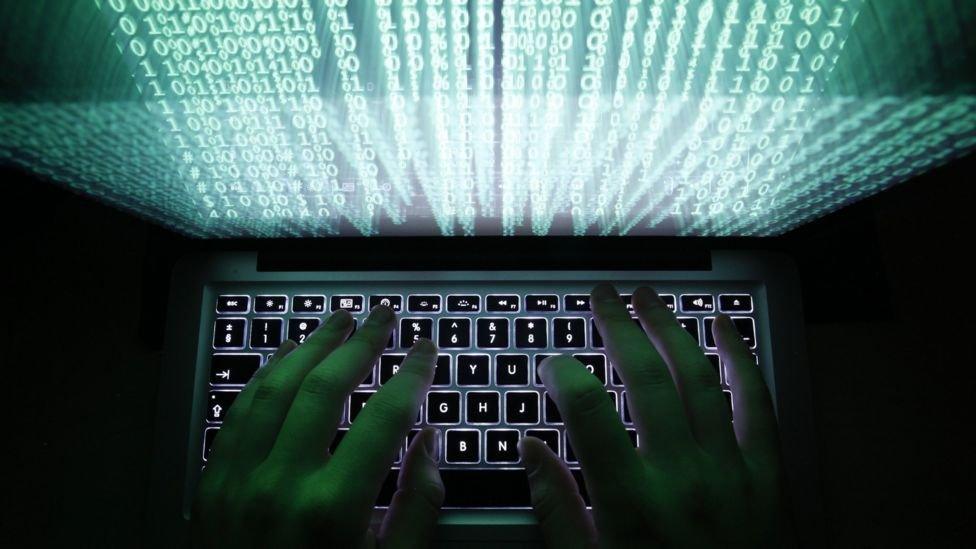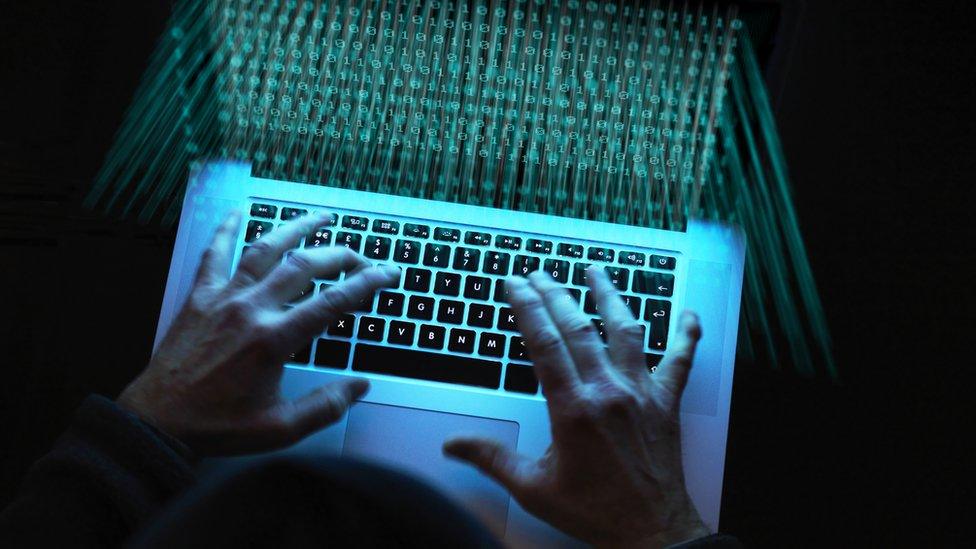Irish cyber-attack: Hackers bail out Irish health service for free
- Published

The Irish Department of Health was attacked last Thursday, and the Conti ransomware group is threatening to publish data
Hackers responsible for causing widespread disruption to the Irish health system have unexpectedly gifted it with the tool to help it recover.
The Conti ransomware group was reportedly asking the health service for $20m (£14m) to restore services after the "catastrophic hack".
But now the criminals have handed over the software tool for free.
The Irish government says it is testing the tool and insists it did not, and would not, be paying the hackers.
Taoiseach (Irish prime minister) Micheál Martin said on Friday evening that getting the software tool was good, but that enormous work is still required to rebuild the system overall.
Conti is still threatening to publish or sell data it has stolen unless a ransom is paid.
On its darknet website, it told the Health Service Executive (HSE), which runs Ireland's healthcare system, that "we are providing the decryption tool for your network for free".
"But you should understand that we will sell or publish a lot of private data if you will not connect us and try to resolve the situation."
It was unclear why the hackers gave the tool - known as a decryption key - for free, said Health Minister Stephen Donnelly.
"No ransom has been paid by this government directly, indirectly, through any third party or any other way. Nor will any such ransom be paid," he told Irish broadcaster RTÉ.
"It came as a surprise to us. Our technical team are currently testing the tool. The initial responses are positive."
FBI warning
In the USA, a warning has been issued by the FBI about Conti targeting networks belonging to authorities there.
It said it had identified at least 16 Conti ransomware attacks targeting "US healthcare and first responder networks".
More than 400 organisations have been targeted by Conti worldwide, of which more than 290 are based in the US, according to the FBI.
"Conti typically steals victims' files and encrypts the servers and workstations in an effort to force a ransom payment from the victim.
"If the ransom is not paid, the stolen data is sold or published to a public site controlled by the Conti actors," it added.
The FBI said that recent ransom demands have been as high as $25m (£21m).


It's not unprecedented for ransomware criminals to give away their decryption tools for free.
Some of these gangs operate by a flimsy code of "ethics", stating they don't intend to endanger lives.
In one case, criminals accidentally took a hospital offline; reports suggest the hackers gave the hospital a decryptor for free when they realised their mistake.
Then again, there are ransomware operators who don't care and are presumably delighted to watch chaos unfold as they extort money from their victims.
Hundreds of health care facilities in the US alone were attacked in 2020.
We don't know what the motivation for the Conti gang is here.
They clearly knew they were attacking a health service, and spent days trying to secure a ransom payment for the decryptor.
Perhaps they suddenly grew a conscience.
Perhaps they were under pressure from law enforcement or other hackers to rein it in.
Or perhaps, faced with a wall of silence from the Irish government, they gave up.
What's telling is that the criminals are still hoping to get their payday by threatening to publish private data online.

Threats to publish data
A decryption key is a piece of data that can be used to reverse the damage done by ransomware.
Ransomware groups usually encrypt data on victims networks scrambling files to make them unusable without the decryption key.
The Irish government says the tool could get hospitals and the health care system back to normal sooner than the process of rebuilding their IT from scratch.
The Irish Department of Health was attacked last Thursday, with a similar attack on the HSE last Friday.
On Thursday, the head of the HSE, Paul Reid, described the impact of the cyber-attack as "catastrophic" and "stomach-churning".
The HSE has secured a High Court order preventing the Russia-based hackers - or any individual or business - from sharing, processing, or selling the information.
The court injunction also applies to social media platforms such as Twitter, Google, and Facebook and therefore limits the gang's scope for disseminating the information.
The HSE said all elements of health services were affected, including major disruption to radiotherapy services.
It said it was working to treat all urgent radiation patients in private hospitals.
There have been cancellations across all outpatient services, with colonoscopies down by as much as 80% and chemotherapy and daily elective procedures down by 50%.
Related topics
- Published18 May 2021

- Published16 May 2021
